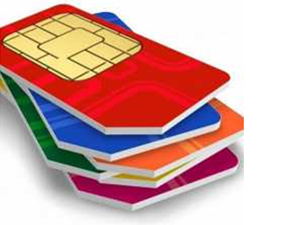



Date:19/02/16
 The GSMA, which represents carriers and mobile companies around the world, has announced a new eSIM specification for smartwatches, fitness trackers, and tablets, which allows users to remotely activate a SIM embedded in those devices.
The GSMA, which represents carriers and mobile companies around the world, has announced a new eSIM specification for smartwatches, fitness trackers, and tablets, which allows users to remotely activate a SIM embedded in those devices.
The trick will allow users to add mobile devices to a single subscription, in turn allowing them to connect directly to a mobile network. No separate SIM cards, no phone-as-a-middle-man, just an embedded SIM in each device, programmed to connect to a network all by itself.
The specification is backed by manufacturers such as Samsung, LG and Huawei, along with carriers including AT&T, Sprint and Verizon. The GSMA plans to roll out a similar standard for smartphones themselves in June—at which point the SIM cards days could be numbered.
Not that the GSMA sees it that way. It says “the initiative does not aim to replace all SIM cards in the field, but is instead designed to help users connect multiple devices through the same subscription and will help mobile device manufacturers to develop a new range of smaller, lighter mobile-connected devices that are better suited for wearable technology applications.”
Samsung has simultaneously announced that its Gear S2 classic 3G will be the first device to support the new specification, available in March.
For what it’s worth, it isn’t the first example of a programmable SIM card, because there are proprietary version out there already—notably in Apple’s iPads. But, as the GSMA notes, this is “the only common, interoperable and global specification that has the backing of the mobile industry.”
New eSIM to let you connect your smartwatch to 3G networks without a phone
 The GSMA, which represents carriers and mobile companies around the world, has announced a new eSIM specification for smartwatches, fitness trackers, and tablets, which allows users to remotely activate a SIM embedded in those devices.
The GSMA, which represents carriers and mobile companies around the world, has announced a new eSIM specification for smartwatches, fitness trackers, and tablets, which allows users to remotely activate a SIM embedded in those devices.The trick will allow users to add mobile devices to a single subscription, in turn allowing them to connect directly to a mobile network. No separate SIM cards, no phone-as-a-middle-man, just an embedded SIM in each device, programmed to connect to a network all by itself.
The specification is backed by manufacturers such as Samsung, LG and Huawei, along with carriers including AT&T, Sprint and Verizon. The GSMA plans to roll out a similar standard for smartphones themselves in June—at which point the SIM cards days could be numbered.
Not that the GSMA sees it that way. It says “the initiative does not aim to replace all SIM cards in the field, but is instead designed to help users connect multiple devices through the same subscription and will help mobile device manufacturers to develop a new range of smaller, lighter mobile-connected devices that are better suited for wearable technology applications.”
Samsung has simultaneously announced that its Gear S2 classic 3G will be the first device to support the new specification, available in March.
For what it’s worth, it isn’t the first example of a programmable SIM card, because there are proprietary version out there already—notably in Apple’s iPads. But, as the GSMA notes, this is “the only common, interoperable and global specification that has the backing of the mobile industry.”
Views: 629
©ictnews.az. All rights reserved.Similar news
- Azerbaijani project to monitor disease via mobile phones
- Innovative educational system to be improved under presidential decree
- NTRC prolongs license of two TV and radio organizations for 6 years
- Azerbaijan establishes e-registry for medicines
- Azerbaijani museum introduces e-guide
- Nar Mobile opens “Nar Dunyasi” sales and service center in Siyazan city
- International conference on custom electronic services held in Baku
- OIC secretary general to attend COMSTECH meeting in Baku
- Azerbaijan develops earthquake warning system
- New law to regulate transition to digital broadcasting in Azerbaijan
- Azerbaijani State Social Protection Fund introduces electronic digital signature
- Intellectual traffic management system in Baku to be commissioned in December
- Tax Ministry of Azerbaijan started receiving video-addresses
- World Bank recommends Azerbaijan to speed up e-service introduction in real estate
- Azerbaijan to shift to electronic registration of real estate





















